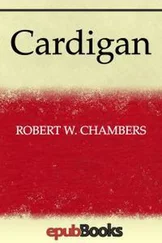Роберт Чамберс - A Young Man in a Hurry
Здесь есть возможность читать онлайн «Роберт Чамберс - A Young Man in a Hurry» весь текст электронной книги совершенно бесплатно (целиком полную версию без сокращений). В некоторых случаях можно слушать аудио, скачать через торрент в формате fb2 и присутствует краткое содержание. Год выпуска: 2014, Издательство: epubBooks Classics, Жанр: Классическая проза, на английском языке. Описание произведения, (предисловие) а так же отзывы посетителей доступны на портале библиотеки ЛибКат.
- Название:A Young Man in a Hurry
- Автор:
- Издательство:epubBooks Classics
- Жанр:
- Год:2014
- ISBN:нет данных
- Рейтинг книги:5 / 5. Голосов: 1
-
Избранное:Добавить в избранное
- Отзывы:
-
Ваша оценка:
- 100
- 1
- 2
- 3
- 4
- 5
A Young Man in a Hurry: краткое содержание, описание и аннотация
Предлагаем к чтению аннотацию, описание, краткое содержание или предисловие (зависит от того, что написал сам автор книги «A Young Man in a Hurry»). Если вы не нашли необходимую информацию о книге — напишите в комментариях, мы постараемся отыскать её.
A Young Man in a Hurry — читать онлайн бесплатно полную книгу (весь текст) целиком
Ниже представлен текст книги, разбитый по страницам. Система сохранения места последней прочитанной страницы, позволяет с удобством читать онлайн бесплатно книгу «A Young Man in a Hurry», без необходимости каждый раз заново искать на чём Вы остановились. Поставьте закладку, и сможете в любой момент перейти на страницу, на которой закончили чтение.
Интервал:
Закладка:
Tennant smoked thoughtfully.
"Some incompetent," continued Calvert, "is trying to make you uncomfortable. You asked us for a chance; we gave you the chance. You proved valuable to us, and we gave you Marlitt's job. You need not worry: Marlitt was useless, and had to go anyway. Warrington left us to–day, and you've got to do his work."
Tennant regarded him in silence; Calvert laid one pudgy hand on the door–knob. "You know what we think of your work. There is not a man in New York who has your chance. All I say is, we gave you the chance and you took it. Keep it; that's what we ask!"
"That is what I ask," said Tennant, with a troubled laugh. "I am sentimentalist enough to feel something like gratitude towards those who gave me my first opportunity."
"Obligation's mutual," snapped Calvert. The hardness in his eyes, however, had died out. "You'd better finish that double page," he added; "they want to start the color–work by Monday. You'll hear from us if there's any delay. Good–bye."
"'I WISH YOU'D GIVE MARLITT ANOTHER CHANCE'"
Tennant opened the door for him; Calvert, buttoning his gloves, stepped out into the hallway and rang for the elevator. Then he turned:
"Don't let envy make things unpleasant for you, Mr. Tennant."
"Nobody has shown me any envy," said Tennant.
"I thought you said something about your friend Marlitt—"
"I never saw Marlitt; I only know his work."
"Oh," said Calvert, with a peculiar smile, "you only know his work!"
"That is all. Who is Marlitt?"
"The last of an old New York family; reduced circumstances, proud, incompetent, unsuccessful. Why does the artist who signs 'Marlitt' interest you?"
"This is why," said Tennant, and drew a letter from his pocket. "Do you mind listening?"
"Go on," said Calvert, with a wry face. And Tennant began:
"'DEAR MR. TENNANT,—Just a few words to express my keenest interest and delight in the work you are doing—not only the color work, but the pen–and–ink. You know that the public has made you their idol, but I thought you might care to know what the unsuccessful in your own profession think. You have already taught us so much; you are, week by week, raising the standard so high; and you are doing so much for me, that I venture to thank you and wish you still greater happiness and success. MARLITT.'"
Calvert looked up. "Is that all?"
"That is all. There is neither date nor address on the note. I wrote to Marlitt care of your office. Your office forwarded it, I see, but the post–office returned it to me to–day…. What has become of Marlitt?"
Calvert touched the elevator–bell again. "If I knew," he said, "I'd find a place for—Marlitt."
Tennant's face lighted. Calvert, scowling, avoided his eyes.
"I want you to understand," he said, peevishly, "that there is no sentiment in this matter."
"I understand," said Tennant.
"You think you do," sneered Calvert, stepping into the elevator. The door slammed; the cage descended; the fat, pink countenance of Calvert, distorted into a furious sneer, slowly sank out of sight.
II
Tennant entered his studio and closed the door. In the mellow light the smile faded from his face. Perhaps he was thinking of the unsuccessful, from whose crowded ranks he had risen—comrades preordained to mediocrity, foredoomed to failure—industrious, hopeful, brave young fellows, who must live their lives to learn the most terrible of all lessons—that bravery alone wins no battles.
"What luck I have had!" he said, aloud, to himself, walking over to the table and seating himself before the drawing. For an hour he studied it; touched it here and there, caressing outlines, swinging masses into vigorous composition with a touch of point or a sweeping erasure. Strength, knowledge, command were his; he knew it, and he knew the pleasure of it.
Having finished the drawing, he unpinned the pencil studies, replacing each by its detail in color—charming studies executed with sober precision, yet sparkling with a gayety that no reticence and self–denial could dim. He dusted the drawing, tacked on tracing–paper, and began to transfer, whistling softly as he bent above his work.
Sunlight fell across the corner of the table, glittering among glasses, saucers of porcelain, crystal bowls in which brushes dipped in brilliant colors had been rinsed. To escape the sun he rolled the table back a little way, then continued, using the ivory–pointed tracing–stylus. He worked neither rapidly nor slowly; there was a leisurely precision in his progress; pencil, brush, tracer, eraser, did their errands surely, steadily. Yet already he had the reputation of being the most rapid worker in his craft.
During intervals when he leaned back to stretch his muscles and light a cigarette his eyes wandered towards a window just across the court, where sometimes a girl sat. She was there now, rocking in a dingy rocking–chair, stitching away by her open window. Once or twice she turned her head and glanced across at him. After an interval he laid his cigarette on the edge of a saucer and resumed his work. In the golden gloom of the studio the stillness was absolute, save for the delicate stir of a curtain rustling at his open window. A breeze moved the hair on his temples; his eyes wandered towards the window across the court. The window was so close that they could have conversed together had they known each other.
In the court new grass was growing; grimy shrubbery had freshened into green; a tree was already in full leaf. Here and there cats sprawled on sun–warmed roofs, sparrows chirked under eaves from whence wisps of litter trailed, betraying hidden nests.
Below his window, hanging in heavy twists, a wistaria twined, its long bunches of lilac–tinted blossoms alive with bees.
His eyes followed the flight of a shabby sparrow. "If I were a bird," he said, aloud, "I'd not be idiot enough to live in a New York back yard." And he resumed his work, whistling.
But the languor of spring was in his veins, and he bent forward again, sniffing the mild air. The witchery of spring had also drawn his neighbor to her window, where she leaned on the sill, cheeks in her hands, listlessly watching the flight of the sparrows.
The little creatures were nest–building; from moment to moment a bird fluttered up towards the eaves, bearing with it a bit of straw, a feather sometimes, sometimes a twisted end of string.
"It's spring–fever," he yawned, passing one hand over his eyes. "I feel like rolling on the grass—there's a puppy in that yard doing it now—"
He washed a badger brush and dried it. Perfume from the wistaria filled his throat and lungs; his very breath, exhaling, seemed sweetened with the scent.
"There's that girl across the way," he said, aloud, as though making the discovery for the first time.
Sunshine now lay in dazzling white patches across his drawing. He blinked, washed another brush, and leaned back in his chair again, looking across at his neighbor. Youth is in itself attractive; and she was young—a white–skinned, dark–eyed girl, a trifle colorless, perhaps, like a healthy plant needing the sun.
"They grow like that in this town," he reflected, drumming idly on the table with his pencil. "Who is she? I've seen her there for months, and I don't know."
The girl raised her dark eyes and gave him a serene stare.
"Oh yes," he muttered, "I see your eyes, but they tell me nothing about you. You're all alike when you look at us out of the windows called eyes. What's behind those eyes? Nobody knows. Nobody knows."
He dropped his hand on the table and began tracing arabesques with his pencil–point. Then his capricious fancy blossomed into a sketch of his neighbor—a rapid idealization, which first amused, then enthralled him.
Читать дальшеИнтервал:
Закладка:
Похожие книги на «A Young Man in a Hurry»
Представляем Вашему вниманию похожие книги на «A Young Man in a Hurry» списком для выбора. Мы отобрали схожую по названию и смыслу литературу в надежде предоставить читателям больше вариантов отыскать новые, интересные, ещё непрочитанные произведения.
Обсуждение, отзывы о книге «A Young Man in a Hurry» и просто собственные мнения читателей. Оставьте ваши комментарии, напишите, что Вы думаете о произведении, его смысле или главных героях. Укажите что конкретно понравилось, а что нет, и почему Вы так считаете.












